This incredible phenomenon looks like something out of sci-fi, but it’s real!
Category: climatology – Page 94
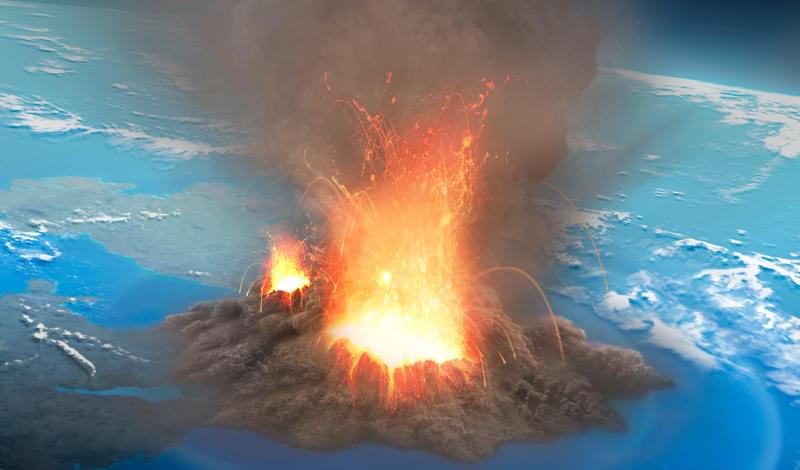
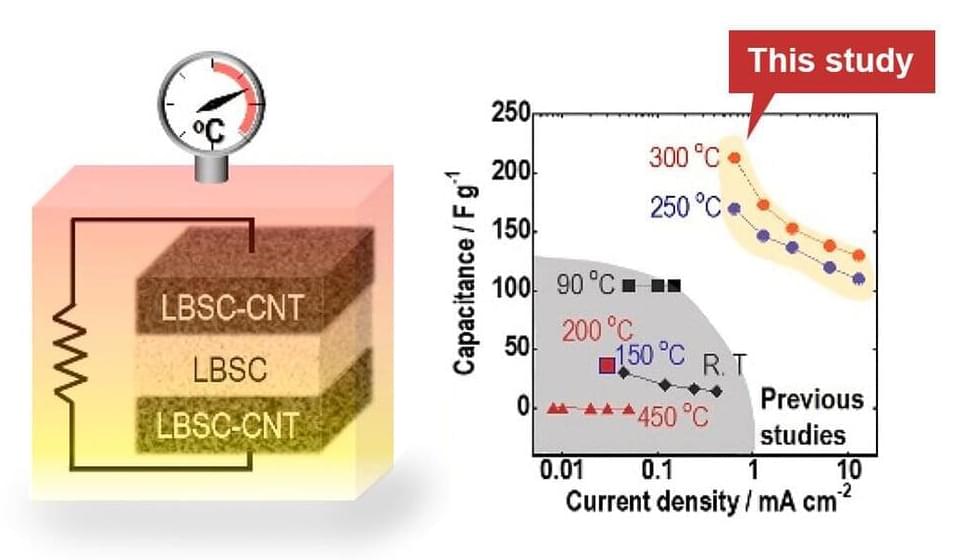
New heat-tolerant, high-capacity capacitor created with solid electrolytes borrowed from all-solid-state batteries
Capacitors are energy storage devices—consisting of two electrodes and an electrolyte—that are capable of rapid charging and discharging because of charge adsorption and desorption properties at the electrode-electrolyte interface. Because capacitors’ energy storage does not involve chemical reactions, their storage capacity is lower than that of lithium-ion batteries, but they are useful for power leveling for renewable energy that requires repeated charging at high currents, regenerative braking energy for trains and electric or hybrid cars, as well as instantaneous voltage drop compensation devices that prevent equipment failure due to lightning strikes. They are also expected to be used to store energy for wearable devices in the near future.
Most capacitors use a liquid electrolyte with a low boiling point, which can only be used at temperatures below 80℃. Ceramic capacitors that use solid inorganic materials as a dielectric can be used at temperatures above 80℃, but their storage capacity is much lower than liquid electrolyte capacitors, which limits their use to electronic circuits.
To increase the energy storage of capacitors, it is necessary to have a large contact area at the interface between the electrode and the electrolyte. Making a large contact area is difficult using solid electrolytes; so, the creation of a capacitor with high storage capacity that can also operate at high temperatures has been desired for a long time.
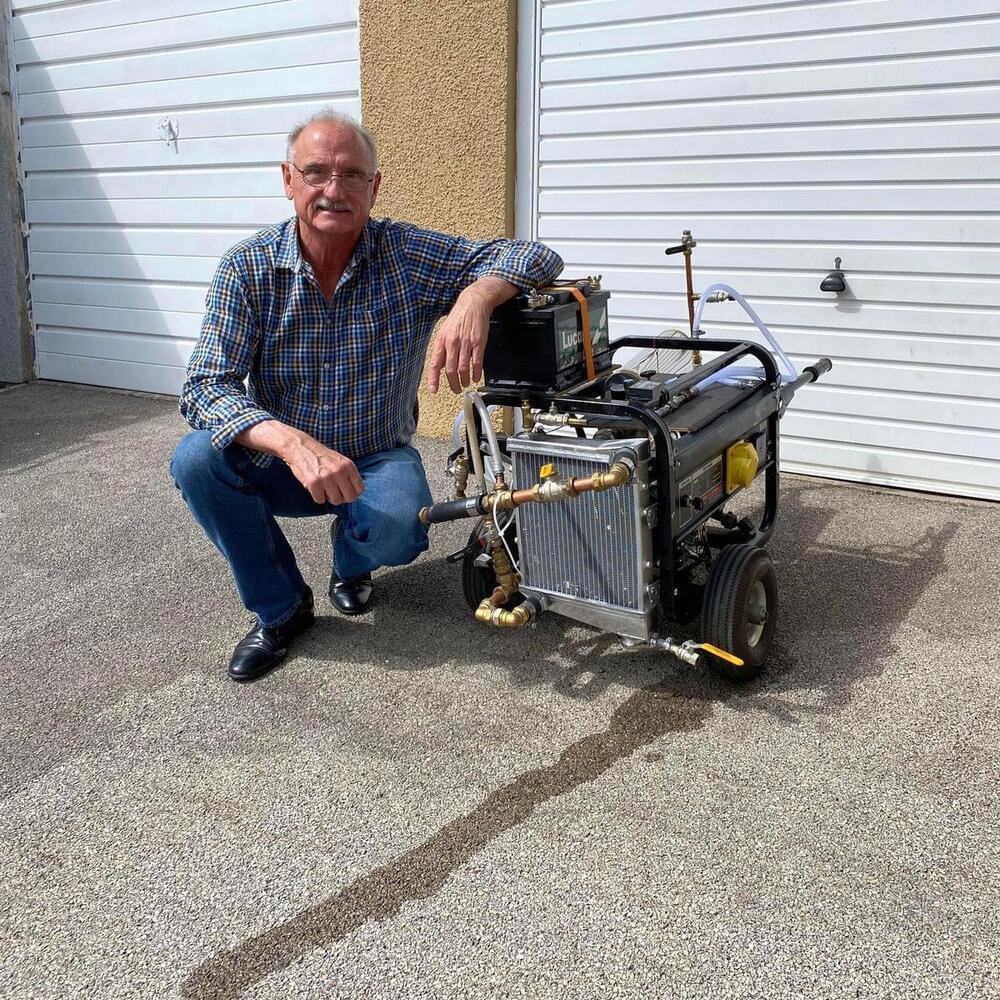
Inventor unveils ‘game-changing’ zero emissions hydrogen engine
I interviewed the gentleman talked about in this article yesterday. If his invention is what he says it is, deploying it to convert the existing inventory of billions of internal combustion engines would get us to net-zero emissions a lot faster.
A POWYS inventor has unveiled a zero-emissions internal combustion engine, which he says could be a game-changer in the fight against climate change.
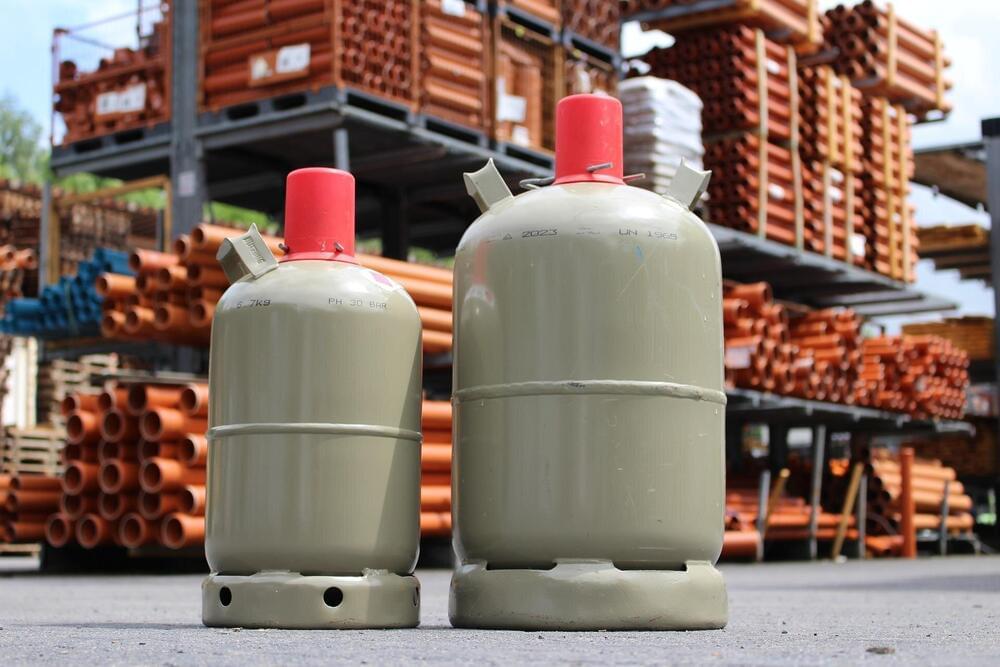
Is propane a solution for more sustainable air conditioning?
Current severe heatwaves that will likely increase in severity and frequency in the future are driving a rise in the use of air conditioners, threatening the environment with their high energy consumption and refrigerants with high warming potential. A new study finds that switching to propane as a refrigerant could lessen the global temperature increase from space cooling.
We spend enormous amounts of energy on fighting off the heat in the summer, or throughout the whole year at lower latitudes—about one-tenth of the total worldwide electricity supply. If current temperature trends continue, the energy demands of space-coolers will more than triple by 2050. Apart from the rise in energy consumption, space-coolers also threaten the environment in different ways: by using halogenated refrigerants with high global warming potential.
Split-air conditioners (Split ACs) that use an indoor and an outdoor air unit connected by pipes are the most common appliances used for space-cooling. They mostly utilize HCFC-22 and HFC-410 as refrigerants, both of them characterized by a very high global warming potential score, up to 2,256—meaning that they trap up to 2,256 times more heat than carbon dioxide over 100 years. Urged by the Kigali Amendment to the Montreal Protocol, many manufacturers are looking for alternative refrigerants with lower global warming potential scores, such as HFC-32. However, with a global warming potential score of 771, HFC-32 still poses a significant climate hazard.

Nuclear War Would Cause a Global Famine and Kill Billions, Rutgers-Led Study Finds
We might all starve.
Researchers from Rutgers University calculated the possible effects of nuclear wars. The result shows that a nuclear war between countries such as Russia and USA could kill billions and cause starvation within two years.
It also demonstrates that large deficits would arise in imports due to the depletion of crops.
Every human being is afraid of nuclear war beyond any doubt. Researchers went into overdrive to see what would happen when a nuclear war broke out, dangerous enough to bring the end of humanity as well as all life on Earth.
More than 5 billion people would die of hunger following a full-scale nuclear war between the U.S. and Russia, according to a global study led by Rutgers climate scientists that estimates post-conflict crop production.
“The data tell us one thing: We must prevent a nuclear war from ever happening,” said Alan Robock, a Distinguished Professor of Climate Science in the Department of Environmental Sciences at Rutgers-New Brunswick and co-author of the study. Lili Xia, an assistant research professor in the School of Environmental and Biological Sciences, is lead author of the study published in the journal Nature Food .
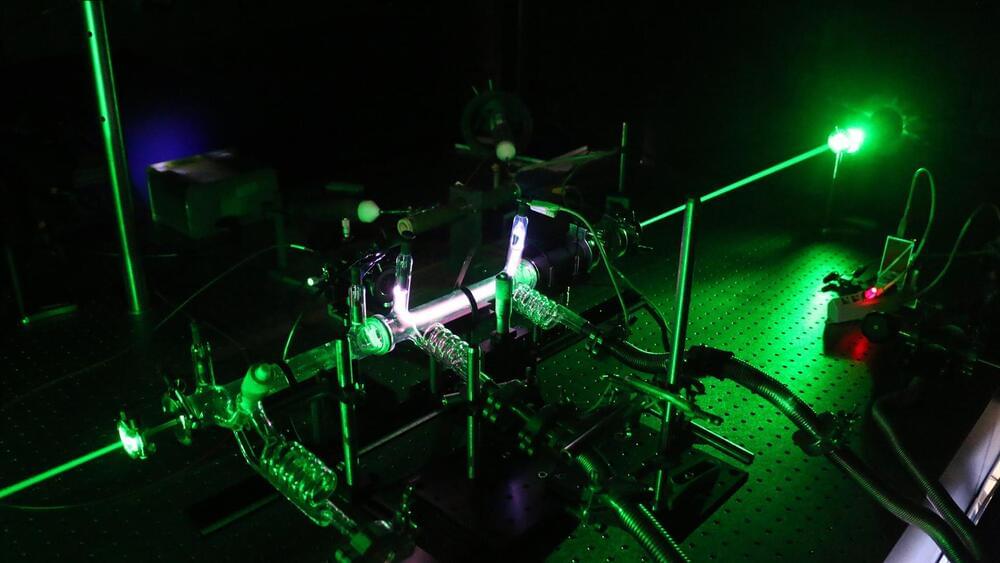
Plasma-powered oxygen harvesting could help humans live on Mars
We’re talking fuels and fertilizers required for the development of life-support systems on the Red Planet.
In 2015, Vasco Guerra, from the University of Lisbon, happened to attend a lecture by Professor Dava Newman, director of the MIT Media Lab and a former deputy administrator of NASA, on space exploration and the forthcoming NASA missions. Back then, Guerra was leading a project on plasma reforming of carbon dioxide on Earth — how CO2 could be a potential raw material to produce fuels with the help of green energy.
Scientists have been working on plasma technologies to split CO2 into oxygen and carbon monoxide, primarily prompted by the persistent problems of climate change. international team of researchers have introduced a plasma-based method that could convert carbon dioxide into oxygen and produce fuels on Mars.

How Technology Companies Can Get Their ESG Strategy to Appeal to Youth
As investors continue to put money into technology companies making a difference, there is a misconception that a majority of investors belong to younger generations. New research shows the distribution in ESG-motivated investment: 54% are Gen Z and millennials, 42% are baby boomers, and 25% are Gen Xers.
ESG Standards That Younger Generations Care About
From combatting climate change to expanding diversity in the boardroom and instituting more corporate equitable policies, technology companies need to understand what Gen Z and Gen X care about. If any sector of the global economy is sensitive to ESG it should be technology with its appeal to younger audiences. That’s why the recent acceleration of widespread reporting on ESG principles and practices is creating a shift in power, money and jobs from baby boomers to millennials and Gen Z, in which passive investing, COVID, social injustice issues, the Great Resignation and talent shortages are all contributing factors.
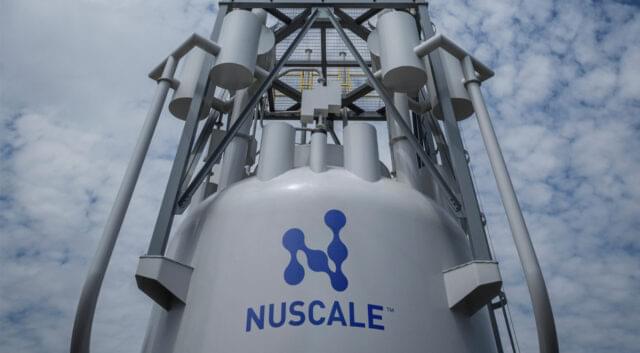
US Regulators to Certify First Small Modular Nuclear Reactor Design
View insights.
Since 2016, engineering firm NuScale has been working toward getting approval for a first-of-its-kind nuclear reactor, and late last week, the Nuclear Regulatory Commission (NRC) gave it the green light. The company’s pint-sized nuclear reactor has numerous safety benefits over larger reactors, and the small size makes it possible to build them at a centralized facility before shipping them to their final destination.
Nuclear power seems to flip between savior and boogeyman every few years. As climate change escalates due to the use of fossil fuels, nuclear is seen as a way to reduce carbon emissions while maintaining high electricity generation. However, all it takes is one accident like Fukushima or a reminder that Chernobyl is still incredibly dangerous decades later to make people second-guess the construction of new fission generators.
NuScale, which has been anticipating approval of this design since the last technology review in 2020, says its small modular reactor (SMR) addresses these concerns. It’s based on a “Multi-Application Small Light Water Reactor” developed at Oregon State University in the early 2000s. It has a compact uranium nuclear core along with helical coil steam generators inside the same steel reactor vessel. So, it generates power through the same mechanism as a traditional reactor (no fancy uranium or thorium salts here), but each SMR only produces about 50 MWe (megawatts electrical) compared with 1,000 or more in existing reactor designs.
New information on ‘gigantic jet’ lightning bursts that reach toward space
A detailed 3D study of a massive electrical discharge that rose 50 miles into space above an Oklahoma thunderstorm has provided new information about an elusive atmospheric phenomenon known as gigantic jets. The Oklahoma discharge was the most powerful gigantic jet studied so far, carrying 100 times as much electrical charge as a typical thunderstorm lightning bolt.
The gigantic jet moved an estimated 300 coulombs of electrical charge into the ionosphere—the lower edge of space—from the thunderstorm. Typical lightning bolts carry less than five coulombs between the cloud and ground or within clouds. The upward discharge included relatively cool (approximately 400 degrees Fahrenheit) streamers of plasma, as well as structures called leaders that are very hot—more than 8,000 degrees Fahrenheit.
“We were able to map this gigantic jet in three dimensions with really high-quality data,” said Levi Boggs, a research scientist at the Georgia Tech Research Institute (GTRI) and the paper’s corresponding author. “We were able to see very high frequency (VHF) sources above the cloud top, which had not been seen before with this level of detail. Using satellite and radar data, we were able to learn where the very hot leader portion of the discharge was located above the cloud.”